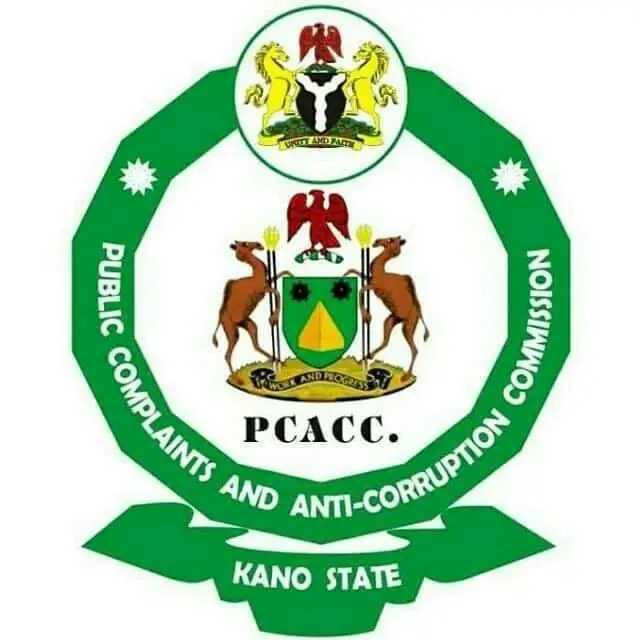Kano anti-corruption commission has treated 12,630 cases in 18 years – official
The Kano State Public Complaints and Anti-Corruption Commission (PCACC) says the organisation has received and treated over 12,630 petitions in 18 years that it has existed. An official of the commission, SP. Raubilu Ubayi Ringim, said this at a two-day workshop in Abuja. The programme was organised by Civil Society Legislative Advocacy Centre (CISLAC), the […]

The Kano State Public Complaints and Anti-Corruption Commission (PCACC) says the organisation has received and treated over 12,630 petitions in 18 years that it has existed.
An official of the commission, SP. Raubilu Ubayi Ringim, said this at a two-day workshop in Abuja.
The programme was organised by Civil Society Legislative Advocacy Centre (CISLAC), the national chapter of Transparency International (TI) -Nigeria and MacArthur Foundation themed ‘Prioritizing Anti-Corruption and Accountability Mechanisms in the 2023 elections and beyond’.
“From its inception in April, 2005 to date a period of 18 years, the commission has received over 12,630 complaints/petitions which were distributed among the various department of the commission for their necessary action.”
FG: Why We Are Yet To Complete Abuja-Kaduna-Kano road
Kano gov’t spends N1.5bn on NECO registration fees – Official
“The commission received complaint against Federal Government, organizations stand at 765 (27%), while those registered against Local Government Councils are 360 (13%), the share of cases for Private Organizations are 349 (12%) and those between individuals and groups are up to 1201 (43%).
“The commission had treated all the complaints/petitions with a view to finding remedies. In this regard 1657 (58.5%) were resolved, 139 (5%) are pending, 166 (6%) were rejected, 62 (2%) withdrawn, 139 (5) are pending and 631 (22.5%) are still under investigation,” Ringim said.
He, however, said that part of the challenges include the law establishing the commission which permits it to receive donation and endowment, provided it will not conflict with the functions and operation of the commission, and that the commission is however not permitted to charge any fees for services it provides.
On her part, the Chief Legal Officer, Oyo State Anti-Corruption Agency (OYACA), Olayanju Eo-Abasi, who spoke on ‘Learning about State Level Anti-Corruption Agencies from Representatives’ said that the agency was established in December 2019 by the administration of Governor Seyi Makinde in a bid to curb corrupt practices in the state and that it formally commenced operations in 2021 after the inauguration of the Board.
She said despite some challenges, the agency has recorded landmark achievements that stem corruption in the state.
Also, Executive Director of CISLAC, Mallam Auwal Musa Rafsanjani, said that Kano and Oyo states were picked as case studies due to the need to strengthen anti-corruption efforts at the sub-national level, where massive corruption take place and lessen the over-concentration at the federal level.
“We commend Kano and Oyo states for establishing state anti-corruption agencies and efforts of these agencies thus far. We urge Imo, Kogi and Borno State House of Assemblies represented here to push for the establishment of state anti-corruption agency in their respective states.
“Corruption affects us all. It threatens sustainable economic development and ethical values and justice; it destabilizes our society and endangers the rule of law. It is therefore imperative that anti-corruption efforts are replicated and implemented at the state level and beyond. Nigerians need to own the process,” Rafsanjani said.
